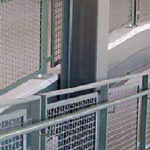Introduction
Wire mesh, including stainless steel wire mesh, plays a crucial role in various industrial and commercial applications. From filtration and fencing to structural reinforcement and decorative enhancements, wire mesh offers versatility and reliability. The importance of choosing the right wire mesh alloy is paramount, as it impacts the durability, safety, and functionality of the mesh in different environments.
Selecting the correct alloy is essential for ensuring long-lasting performance. Whether you’re working with stainless steel wire mesh or other materials, companies like California Wire Products offer valuable guidance in making the right choice for your project. Industry standards, such as ISO and ASTM, play a crucial role in wire mesh alloy selection by ensuring materials meet specific performance, safety, and quality benchmarks. These standards provide guidelines on properties like corrosion resistance, tensile strength, and durability, helping businesses select alloys that are reliable and compliant with regulatory requirements. Adhering to these standards ensures consistency and reliability in demanding applications across industries.
Understanding Different Wire Mesh Alloys
Wire mesh alloys refer to the materials used to construct the mesh, and they greatly affect its performance. Each alloy offers unique properties suited to specific applications, environments, and aesthetic requirements.
Here are some of the most commonly used wire mesh alloys in the industry:
- Stainless Steel (Types 304, 316): Known for its corrosion resistance, stainless steel is ideal for applications where durability and strength are key.
- Aluminum: Lightweight and corrosion-resistant, aluminum wire mesh is often used in automotive, aerospace, and food processing industries.
- Copper: Valued for its conductivity and aesthetic appeal, copper is used in both electrical and decorative applications.
- Brass: Similar to copper, brass is used in decorative projects but offers more durability.
- Galvanized Steel: Coated with zinc for added rust resistance, galvanized steel is a cost-effective option for outdoor and agricultural applications.
Key Factors to Consider When Choosing a Wire Mesh Alloy
1. Environmental Conditions
Different environments can significantly affect the longevity of wire mesh. In corrosive environments such as marine settings or areas exposed to chemicals, choosing a corrosion-resistant alloy like stainless steel wire mesh (Type 316) is critical. For high-temperature applications, the alloy must withstand the heat without compromising its structural integrity. Humidity also plays a role, as prolonged exposure to moisture can cause certain metals to rust. Galvanized steel or stainless steel alloys are excellent choices for humid conditions.
2. Mechanical Strength and Durability
Each alloy has its own tensile strength and load-bearing capacity, which determines how well it can handle stress and heavy loads. Stainless steel, particularly Type 316, is known for its high strength and is often used in construction and mining applications where durability is essential. For projects requiring lightweight yet durable materials, aluminum wire mesh offers a great balance between strength and weight, making it popular in industries like aerospace and automotive.
3. Aesthetic Requirements
For projects where appearance matters, such as decorative architecture or interior design, alloys like copper or brass are ideal. Their warm tones and natural beauty make them popular in projects where aesthetics are as important as functionality.
4. Cost Considerations
The cost of different wire mesh alloys varies, and choosing the right one often comes down to balancing the initial investment with long-term benefits. While stainless steel or copper might be more expensive upfront, their long-lasting performance in corrosive environments or decorative settings can make them a better long-term investment. On the other hand, galvanized steel offers a budget-friendly option for projects that don’t require high-end materials.
The tensile strength values can vary depending on alloy grade and specific composition. Stainless steels, especially Types 304 and 316, offer high tensile strength, making them suitable for heavy-duty applications, while materials like aluminum are more suitable for projects requiring lightweight but durable solutions.
Common Applications and Recommended Alloys
1. Construction and Architecture
Stainless steel, particularly Types 304 and 316, is often used for its structural integrity and ability to withstand harsh environmental conditions. It’s frequently chosen for high-traffic areas, facades, and infrastructure.
2. Automotive and Aerospace
Aluminum wire mesh is the go-to alloy in the automotive and aerospace industries due to its lightweight properties and resistance to corrosion. This makes it an ideal material for reducing the overall weight of vehicles without sacrificing strength.
3. Chemical and Petrochemical Industries
The harsh chemicals used in these industries require wire mesh made from high-grade stainless steel, such as Type 316, which can resist corrosion and maintain its integrity in chemical exposure.
4. Agriculture and Fencing
Galvanized steel is the preferred choice in agricultural settings, where cost-effective, durable materials are needed for fencing and enclosures. The zinc coating provides excellent rust protection in outdoor environments.
5. Decorative and Design Projects
For decorative applications, copper and brass are favored due to their visual appeal. These metals are commonly used in artistic installations, interior design, and architectural accents, where their rich colors add an elegant touch.
How to Match Alloy Characteristics with Your Project Needs
Selecting the right wire mesh alloy for your project is a step-by-step process that involves considering both environmental and functional factors. Here’s how to make the best choice:
- Assess Environmental Exposure: Consider whether the mesh will be exposed to corrosive elements, high temperatures, or humidity. If so, choose an alloy known for its resistance to these conditions.
- Determine the Mechanical Demands of the Project: Understand the tensile strength and load requirements. For heavy-duty projects, alloys like stainless steel wire mesh offer the necessary durability.
- Evaluate Budget Constraints: Balance your budget with the long-term benefits of higher-end alloys. While more expensive materials like stainless steel or copper may have higher upfront costs, they often prove more cost-effective over time.
- Consider Aesthetic Preferences if Relevant: If your project involves decorative elements, select an alloy like copper or brass that enhances the visual appeal.
Next Steps: How to Choose the Right Wire Mesh Alloy for Your Project
Now that you have a solid understanding of the different wire mesh alloys and their specific applications, it’s time to take the next step in ensuring your project’s success. Here are two ways to move forward:
Compare Costs of Different Wire Mesh Alloys
If you’re evaluating multiple options, comparing the costs of different wire mesh alloys is essential. Here are a few steps to help you get the best value for your investment:
- Evaluate Material Costs: Stainless steel and copper tend to have higher upfront costs but offer long-term durability, while galvanized steel is more affordable for projects with less demanding conditions.
- Consider Long-Term Investment: Think about the lifespan of the alloy in your particular environment. More durable alloys like stainless steel wire mesh might be worth the initial investment for projects in corrosive or high-stress environments.
- Get Multiple Quotes: Reach out to different suppliers, including California Wire Products, to compare prices and product availability. Be sure to request details on lead times and any additional services, such as installation support or custom sizing.
Request a Consultation from California Wire Products
If you’re unsure which alloy is best suited for your project or need expert guidance, California Wire Products can provide you with tailored advice. Their team of professionals can help assess your environmental needs, mechanical requirements, and budget constraints to recommend the most appropriate wire mesh alloy for your specific application.
How to Get Started:
- Visit the Website: Go to www.cawire.com to explore more about our wire mesh products.
- Call for a Consultation: Reach out to California Wire Products directly at +1 951-371-7730 to speak with an expert about your project’s needs.
- Request a Quote: If you already have your project specifications in hand, you can request a customized quote through their website.
Conclusion
By consulting with experts and doing a cost comparison, you’ll ensure that the wire mesh alloy you choose is both cost-effective and perfectly suited to your project’s unique requirements. For more information on whether to use stainless steel wire mesh for your project or to get started on your wire mesh alloy selection, contact California Wire Products today!
FAQs
FAQ 1: What makes stainless steel wire mesh a popular choice for industrial applications?
A: Stainless steel wire mesh is highly valued for its corrosion resistance, making it suitable for harsh environments like marine or chemical settings. Its strength and durability also make it ideal for industrial applications that require long-term reliability and minimal maintenance.
FAQ 2: How does aluminum wire mesh compare to other alloys in terms of weight and durability?
A: Aluminum wire mesh is much lighter than materials like stainless steel, making it a great option for applications where weight is a concern, such as in the aerospace and automotive industries. Despite its lightweight nature, it still offers excellent durability and corrosion resistance.
FAQ 3: Are there specific maintenance needs for different wire mesh alloys?
A: Yes, each wire mesh alloy has its own maintenance requirements. For example, stainless steel typically requires minimal upkeep due to its rust resistance, while galvanized steel may need periodic inspections to ensure its zinc coating remains intact. Copper and brass used in decorative applications may also need polishing to maintain their appearance.



